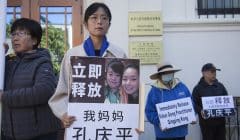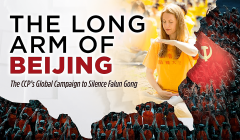Amnesty International: Hong Kong Ten Years On
Hong Kong's return to Chinese sovereignty: ten years on (excerpts)
In 2001 and 2002, members of the Falun Gong spiritual movement, a registered society in Hong Kong despite being banned in China, were arrested at peaceful demonstrations and alleged that they were victims of police violence. In August 2002, 16 Falun Gong members were convicted of obstruction during a demonstration in March. There were claims that the trial was politically motivated. In November 2004, an appeal court reversed the convictions for “”public obstruction”” and in April 2005, the Hong Kong Court of Final Appeal overturned all remaining convictions against the remaining eight Falun Gong practitioners for obstructing and assaulting police. The Court judgment pointed out that the police had not paid enough attention to freedom of association, assembly, procession and demonstration as guaranteed by Article 27 of the Basic Law.
[…]
A lack of clarity on Hong Kong’s relationship with the rest of China under ‘one country, two systems’ has also fueled concerns for the protection of the human rights in Hong Kong. Interpretations of the Basic Law by the National People’s Congress Standing Committee have posed a worrying threat to judicial independence in Hong Kong. While Hong Kong has not reinstated the death penalty, executions carried out in the mainland for crimes committed in Hong Kong have also undermined the protection of human rights for Hong Kong residents.
In spite of these concerns, courts at all levels in Hong Kong have not been afraid to take an impartial and independent approach in many cases involving human rights issues. One illustration is the Court of Final Appeal, which overturned all convictions against a group of Falun Gong practitioners in 2005, thereby upholding fundamental human rights to freedom of expression, association and assembly.
Full report: http://www.amnesty.org/en/library/asset/ASA19/001/2007/en/dom-ASA190012007en.html







